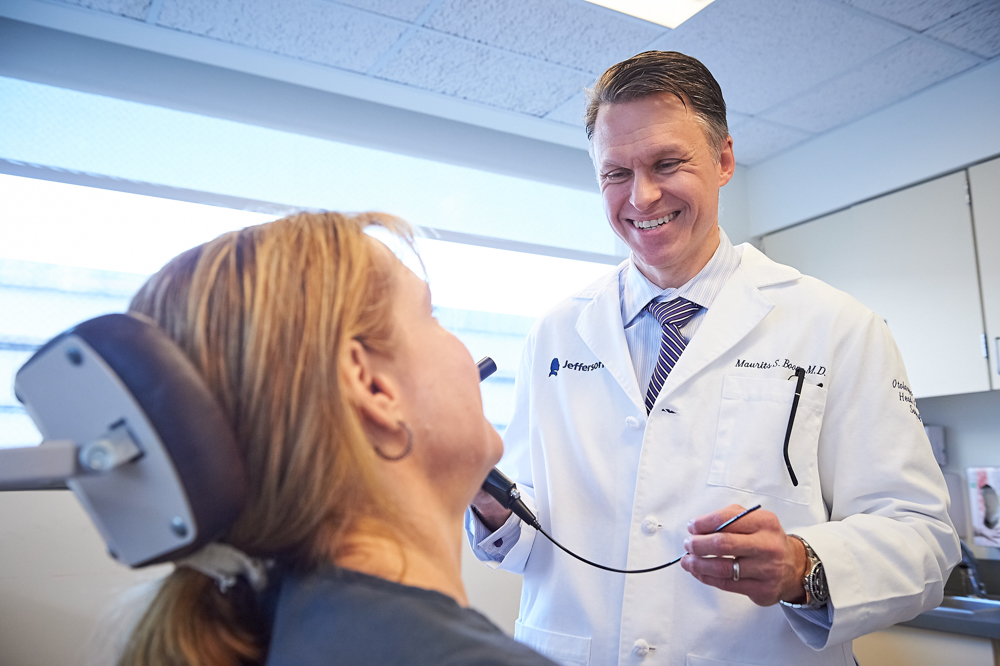Exploring the Field of Otolaryngology: What to Anticipate When You Get In Touch With an ENT
Otolaryngology, frequently referred to as ENT, incorporates the diagnosis and therapy of throat, ear, and nose conditions. For those experiencing related issues, speaking with an ENT professional can provide clarity and alleviation. Comprehending what to anticipate during such assessments is crucial for effective interaction and care. This overview will certainly describe essential aspects of the ENT experience, consisting of common reasons for visits and the procedures associated with medical diagnosis and treatment.

Comprehending Otolaryngology: A Review
Otolaryngology, commonly described as ENT (Ear, Nose, and Throat) medication, is a customized branch of medicine that concentrates on the medical diagnosis and treatment of problems affecting these vital areas of the body. This area incorporates a large range of conditions, consisting of those related to hearing, balance, respiratory system feature, and speech. Otolaryngologists are trained to manage both surgical and medical therapies, utilizing innovative techniques and innovations. Their know-how extends beyond traditional disorders, addressing issues such as allergic reactions, sinus infections, and hearing loss. In addition, they play a critical role in the administration of head and neck cancers cells, offering comprehensive care tailored to individual client requirements. Overall, otolaryngology remains important for preserving health and lifestyle in affected individuals.
Usual Factors to See an ENT Professional
Many people seek the know-how of an ENT expert for a range of reasons, mirroring the varied nature of problems that influence the ear, nose, and throat. Typical problems consist of persistent sinus problems, which typically causes persistent nasal congestion and facial pain. Allergies and their connected signs, such as itching and sneezing, likewise trigger check outs to these specialists (ENT Doctor). Hearing loss, whether gradual or unexpected, is another substantial factor for consultation. On top of that, individuals might look for evaluation for throat disorders, consisting of relentless hoarseness or swallowing troubles. Rest apnea, characterized by disturbed breathing throughout sleep, is frequently addressed by ENT specialists. Each of these problems highlights the value of specialized care in managing intricate ENT-related wellness problems
Preparing for Your ENT Appointment
When planning for an ENT visit, it is vital to gather relevant info and consider any type of specific problems. Individuals must compile an in-depth medical background, including previous ear, nose, or throat issues, surgical procedures, and existing medications. Recording symptoms-- such as duration, extent, and regularity-- can supply valuable insights for the ENT professional. Additionally, people should prepare a listing of inquiries they want to ask, guaranteeing that all worries are addressed throughout the check out. Bringing along any kind of relevant medical documents or test outcomes can further aid the ENT in recognizing the patient's condition. Lastly, patients ought to verify their visit information, including day, place, and time, to reduce any final complication. Appropriate prep work can boost the performance of the consultation and lead to much better results.
What to Expect During the Assessment
As the assessment starts, the individual can expect to engage in a complete conversation with the ENT professional about their symptoms and case history. The professional will certainly ask about the duration, frequency, and seriousness of symptoms such as hearing loss, nasal blockage, or aching throat. Furthermore, the client's previous medical problems, drugs, and any kind of relevant family history will be examined, assisting the professional in developing a complete understanding of the person's health. The ENT may additionally inquire about way of living variables, such as exposure to toxic irritants or allergens. This open discussion develops a structure for the examination, guaranteeing that the patient's concerns are addressed and establishing the phase for any type of required assessments or referrals for treatment.
Analysis Tests and Treatments in Otolaryngology
A variety of diagnostic examinations and procedures are crucial in otolaryngology to precisely examine and diagnose conditions influencing the nose, ear, and throat. Usual tests consist of audiometry, which gauges hearing feature, and tympanometry, assessing center ear pressure. Nasal endoscopy enables visualization of the nasal passages and sinuses, while laryngoscopy analyzes the throat and vocal cords. Imaging methods, such as CT scans and MRIs, offer detailed sights of head and neck frameworks. Allergy testing might additionally be conducted to determine triggers for sinus or respiratory system issues. look what i found These diagnostic tools enable ENT specialists to establish an extensive understanding of patients' conditions, making sure customized and effective monitoring strategies. Correct diagnosis is crucial for successful treatment outcomes in otolaryngology.
Treatment Options Supplied by ENT Specialists
ENT experts use a selection of therapy options customized to resolve certain problems impacting the ear, throat, and nose. These treatments range from conventional strategies, such as medication and lifestyle modifications, to even more invasive procedures. Allergies may be managed with antihistamines or immunotherapy, while chronic sinusitis could call for nasal corticosteroids or sinus surgical procedure. For hearing loss, ENT professionals often advise listening devices or surgical interventions like cochlear implants. In instances of throat problems, options can include speech therapy or procedures to remove obstructions. Additionally, they might give support for handling sleep apnea, consisting of the usage of CPAP devices or medical treatments. Generally, the goal is to boost clients' lifestyle via individualized treatment and efficient treatment methods.
When to Look For Follow-Up Care With an ENT
When to look for follow-up care with an ENT professional is important for handling recurring symptoms or issues associated to throat, ear, and nose conditions, identifying. Clients nose pain need to take into consideration arranging a follow-up consultation if signs and symptoms persist regardless of preliminary therapy, such as chronic ear pain, nasal blockage, or throat discomfort. Adjustments in hearing, equilibrium issues, or unusual nasal discharge might also necessitate further analysis. In addition, if an individual experiences adverse effects from prescribed medicines or has actually undergone a procedure, follow-up treatment is important to monitor recovery and attend to any problems. Prompt examinations can guarantee efficient management of conditions, stop prospective problems, and offer comfort pertaining to one's health and wellness. Looking for follow-up care promotes proactive wellness monitoring in otolaryngology.
Often Asked Questions

What Certifications Should I Search for in an ENT Specialist?
When seeking an ENT professional, one must search for board qualification, relevant experience, and strong individual evaluations. In addition, effective interaction abilities and a caring strategy can significantly boost the total therapy experience.
Just how Do I Select the Right ENT for My Needs?
Picking the appropriate ENT specialist entails examining get more their certifications, experience, and patient evaluations (Hearing). It is important to contemplate their communication design and approach to treatment, guaranteeing they straighten with the individual's specific wellness demands and preferences
Exist Any Risks Related To ENT Procedures?
The dangers related to ENT treatments might consist of infection, bleeding, anesthesia problems, and prospective damages to surrounding structures. Individuals need to discuss these risks with their medical professional to understand individual concerns and warranty notified choices.
How Can I Take Care Of Stress And Anxiety Prior To My ENT Consultation?
To manage anxiety before a visit, people can practice deep breathing workouts, visualize positive end results, prepare questions in advance, and seek assistance from good friends or family members, fostering a sense of peace of mind and calmness.
What Should I Do if I Experience Negative Effects From Therapy?
If negative effects from treatment happen, the person should without delay report them to their health care service provider. Adjustments to treatment or extra treatments may be necessary to assure security and performance in handling their condition - Otolaryngology. As the assessment starts, the patient can anticipate to engage in a detailed discussion with the ENT expert about their symptoms and medical background. These analysis tools make it possible for ENT professionals to establish a detailed understanding of people' problems, guaranteeing tailored and effective management strategies. ENT experts provide a selection of treatment choices customized to resolve details problems impacting the throat, ear, and nose. When looking for an ENT specialist, one must look for board accreditation, relevant experience, and solid person testimonials. Choosing the appropriate ENT expert entails evaluating their qualifications, experience, and individual evaluations